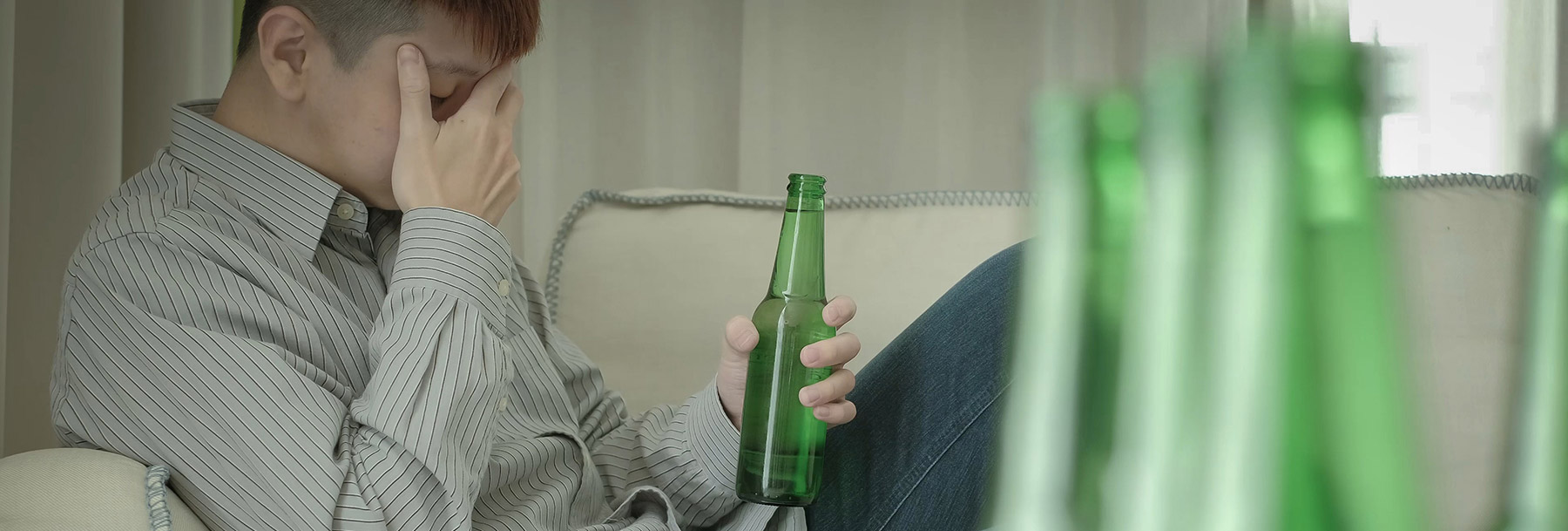Alcohol Consumption and Cancer: What You Need to Know

The holiday season is full of temptations and indulgences when it comes to drinking. You may not even realize how often you drink alcohol during this time of year or how many glasses of wine you had at that holiday party. Before you raise your glass, consider this: scientists agree there’s a strong connection between alcohol consumption and several types of cancer.
According to the National Cancer Institute, researchers consistently find that the more alcohol you drink— particularly the more alcohol you drink regularly over time — the higher your risk of developing an alcohol-associated cancer.
How much is too much alcohol?
The U.S. government’s Dietary Guidelines for Americans 2021-2025 defines alcohol drinking limits like this:
1 drink = 1.5 oz. (1 shot) of hard liquor, 5 oz. of wine, 12 oz. of beer, or 8–9 oz. of malt liquor
Moderate drinking — 1 drink per day for women, 1–2 drinks per day for men
Heavy drinking — more than 3 drinks per day (or more than 7 drinks per week) for women, more than 4 drinks per day (or more than 14 drinks per week) for men
Binge drinking — 4 or more drinks for women, 5 or more drinks for men in one sitting (typically in about 2 hours)
How is alcohol connected to cancer risk?
“One way we think alcohol causes cancer is that our bodies break it down into acetaldehyde, a toxic chemical and human carcinogen,” says Gilberto de Lima Lopes, Jr., M.D., an oncologist with Sylvester Comprehensive Cancer Center and the University of Miami Miller School of Medicine. “Acetaldehyde can damage both DNA (the genetic material that makes up genes) and proteins. Moreover, ethanol (the primary part of alcoholic beverages) is also toxic.
“Alcohol may also impair our body’s ability to break down and absorb nutrients that may help lower your risk of cancer, including vitamin A; nutrients in the vitamin B complex, such as folate; vitamins C, D, and E; and carotenoids.”
Drinking is closely related to the following types of cancer:
- Head and neck cancerPeople who have 3.5 or more drinks per day are two to three times more likely than nondrinkers to develop head and neck cancers, especially cancers of the mouth, throat, and voice box. If you consume that much alcohol and also use tobacco products, your risk increases.
- Esophageal cancerDrinking is also a major risk factor for esophageal squamous cell carcinoma. The risk increases in people who inherit a deficiency in an enzyme that metabolizes alcohol.
- Liver cancerAlcohol consumption is an independent risk factor for and a primary cause of liver cancer.
- Breast cancerMore than 100 studies consistently found an increased risk of breast cancer linked to increased drinking. Scientists have shown that alcohol can increase blood levels of estrogen, a sex hormone linked to the risk of breast cancer. In fact, the studies showed that women who drank more than three drinks a day had 1.5 times the risk of developing breast cancer as nondrinkers. The risk of breast cancer was higher across all levels of alcohol intake, even less than one drink a day. This risk may be higher in women who do not get enough folate (B vitamin) from food or supplements.
- Colorectal cancerPeople who regularly drank 3.5 drinks a day had 1.5 times the risk of developing cancers of the colon and rectum than non-drinkers or occasional drinkers.
How to reduce your cancer risk
If your drinking habits are beyond the guidelines for low-risk alcohol consumption, then now is the time to examine and acknowledge your behaviors so you can make changes. Start with quitting or reducing your alcohol consumption, including red wine. While wine enthusiasts may claim that drinking red wine can reduce cancer risk, research has not shown it to be effective.
Ultimately, “There is no safe level for alcohol consumption, as the risk of cancer increases even with one drink a day,” Dr. Lopes says.
If you’re having trouble curbing alcohol on your own, turn to friends, family, support groups, or a therapist for techniques on cutting back and quitting. There are also mobile apps designed to help users track their drinking behaviors, pay more attention to drinking habits, and change their thinking about alcohol consumption.
Eating healthy (limiting sugar and red and processed meats), regular exercise, stress management, protecting your skin from the sun, and avoiding tobacco products are all proven to help lower the risk of developing cancers.
Updated by Dana Kantrowitz, a contributing writer for UMiami Health News.
Originally published on: January 10, 2018
Tags: cancer care in Miami, drinking alcohol and cancer, Gilberto de Lima Lopes
